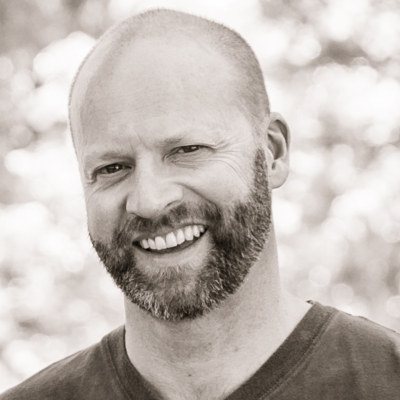Lauren is a qualified sexologist and permission-granter who helps her clients reduce stress and reinvigorate their sex lives. Through her writing, online classes, and one-on-one sessions, she helps high-achieving, introverted women release their physical and psychological blocks to liberate their libidos for sex and life. She is the author of Permission: Personal Liberation for Switched-on Women.
Defining Libido
Lauren takes her definition of libido from Alisa Vitti, the author of Woman Code, who defined libido as “the ability to give and receive pleasure, enjoyment, and acknowledgement.” Using this definition, she’s free to acknowledge nonsexual actions as integral stimulators of her libido. She shares examples of planting her feet in nature, brushing her children’s hair, and working towards and achieving goals as libidinous activities that help her drop into softness and feel powerful in a giving way. Her definition of libido is “a sort of energy that we gain familiarity with and exercise whenever we take part in sensual giving or receiving that becomes easier to channel the more we access it.”
She mentions that her broader definition of libido takes the focus away from exclusively desiring the really passionate, intense, sexual forms of libido, and encourages us to focus on smaller, softer, more day-to-day manifestations of libido. She tells us that focusing exclusively on our desire for intense desire, especially in circumstances that aren’t favorable to it, leads to a loop of dissatisfaction that can make us frustrated while focusing on tinier pleasures can help us escape that frustration loop and clears the way for us to experience the bigger, more passionate emotions.
Women are Held Back by Doing Too Much
Lauren argues that the need women feel to spread themselves thin doesn’t leave a lot of room for the erotic and sexual. While she admits women are good at juggling obligations and multitasking, she thinks a disservice is done when women mistakenly internalize “I can do anything” as “I can do everything” or, worse, “I should do everything.”
Lauren advises women to sit down and make conscious choices about where their energy—their libido—is going. She encourages people to keep doing what they’re doing if it’s fruitful and fulfilling. However, she claims that if there’s a cost to the activity, it’s better to focus on things like personal relationships that you genuinely need to invest in. She says it’s also important not to fall so deeply into work or hobbies that you forget to keep dating.
How to Identify a Withered Libido
In Lauren’s experience, withered libidos usually come to light when women’s partners turn to them and ask why their sex life diminished. For a lot of the women she sees, their loss of libido began with a valid cause, like grief or the loss of a pregnancy, but then refraining from sex became a habit until their partner brought it to their attention. Other times, she sees women who notice their own loss of libido when something in a movie or their friends’ lives brings their loss of vitality to their attention. Gentle wake up calls that remind them of the confident women they used to be do happen, but usually when people have a partner, their partner is the one who brings up the topic.
“I don’t care if I never have sex again.”
Many women who come to see Lauren do not care about sex anymore. She recalls that for many women who have lost their drive for sex, their drive for other activities and their basic sensuality has evaporated simultaneously. She says it’s rare for the sex drive to diminish all by itself, usually lots of other joyous, playful, and pleasantly purposeless activity is also absent. Fun is usually missing too, which she claims is important, because all of those nonsexual indicators of a lack of libido also need to be worked on to reignite women’s sexual libidos. She asserts that it’s never just about sex.
Balancing Masculine and Feminine Energy
In the workplace, Lauren explains, a lot of women learn to act more masculine as a result of working hard and disconnecting from their emotions. Many women wind up with what she calls a very ‘masculine’ energy that is opposed to the physical and metaphorical opening of oneself that’s necessary during sex. She says that even our personal goals like gym routines and strict regimens in our hobbies can encourage the same masculine energy, and women need to balance that with the soft, supple, flowing and accepting nature of femininity. She emphasizes that women don’t have to just be feminine. Masculine energy is great, she explains, but a balance is necessary.
How to Nurture Your Libido
Every human, Lauren asserts, even people who are petrified of change, wants to know that they’re growing and changing in some way. People want to look back and see progress, not a stagnant, repetitive blur or a confirmation that they were too scared to try for something new. She’s certain people want more than that.
Lauren learned from Emily Nagoski that when we move our bodies, we’re letting our bodies know that they’re safe. She explains that we often try to tell ourselves we’re safe or sexual or erotic mentally first, and that’s part of the puzzle, but our bodies won’t respond that way until we act. She doesn’t suggest people jump right into sex, but dance lets you engage in a lot of different movements, including sensual, almost sexual hip movements. She says that can connect you to your sensual, erotic side without throwing yourself into a situation as vulnerable as actually having sex. She reminds us that we usually wait for a feeling and then act on that, but she says that what we need to do is move our bodies first, and then the feelings will come.
Another method she suggests to help your libido flourish is paying attention to the small things in life, and focusing on everyday experiences. She admits that most of the time, most of us are running on autopilot, but says that being mindful of our surroundings, our everyday experiences, and even little details like how we breathe can show us the many, little enjoyable things we were missing. She emphasizes that it doesn’t take big things like luxury purchases and foreign vacations to have a great experience; she reminds us that we can and should accomplish that on a daily basis. The ultimate goal is to get better at caring for ourselves, which she claims we can accomplish by trying new things and continuing to do the ones we enjoy. This lets us enter a flow state, which she describes as the state where you’re losing track of time, completely absorbed in what you’re doing, with your nervous system balanced and happy; this is a state normally attained in good sex, but Lauren suggests that it’s just as important to pursue and enjoy that feeling during daylight hours.
Objections to Overcome
While women often insist they do not have time, Lauren discovered that women were afraid of failing at seeking pleasure, or that they were going to fail when doing things without a predictable outcome. Some of her clients even worried what will happen if it did work! She reminds us that when we were children, we had a natural curiosity about the ‘what if’s in life, while as an adult they hold us back. Also, as children, she knows that we played for the act of playing, instead of to reach an outcome. We learn that as adults we expect to feel satisfied when we finish projects, but she points out that we never really reach that state of happiness.
When time really is the obstacle, Lauren wants people to know that in most situations, time can be made. Making time might involve learning to say no and refusing to take care of everyone except yourself. “We are entitled to take care of ourselves, our needs are important, and we are allowed to relax and make ourselves happy.”
The Role of Permission
Ms. White tells us that permission is wound through everything she’s saying here and in her book, because it’s important for everyone to give themselves permission to show up in life and sex in a way that works for them, without worrying about what other people are doing or expect. She emphasizes that it’s about figuring out what to subtract from and add to our lives. She explains that it’s about acknowledging who you are and what you like to enjoy in your life inside and outside of the bedroom.
How to Find Out More
Her book, Permission, is available worldwide at every online book merchant. Lauren is based in Brisbane, Australia, but she works with people online. She can be contacted on social media using the handle LaurenWhiteAU.
Resources for Lauren White
https://www.laurenwhite.com.au
https://www.instagram.com/laurenwhiteau
https://www.facebook.com/laurenwhiteau
https://www.amazon.com/Permission-Personal-liberation-switched-women-ebook/dp/B07H512SBS
More info:
Link to the free guide – Talking About Sex: http://bettersexpodcast.com/talk
Join my email list here: http://bettersexpodcast.com/list
Book and New Course – https://sexwithoutstress.com
Web – https://www.bettersexpodcast.com/
Sex Health Quiz – http://sexhealthquiz.com/
If you’re enjoying the podcast and want to be a part of making sure it continues in the future, consider being a patron. With a small monthly pledge, you can support the costs of putting this show together. For as little as $2 per month, you can get advance access to each episode. For just a bit more, you will receive an advance copy of a chapter of my new book. And for $10 per month, you get all that plus an invitation to an online Q&A chat with me once a quarter. Learn more at https://www.patreon.com/bettersexpodcast




